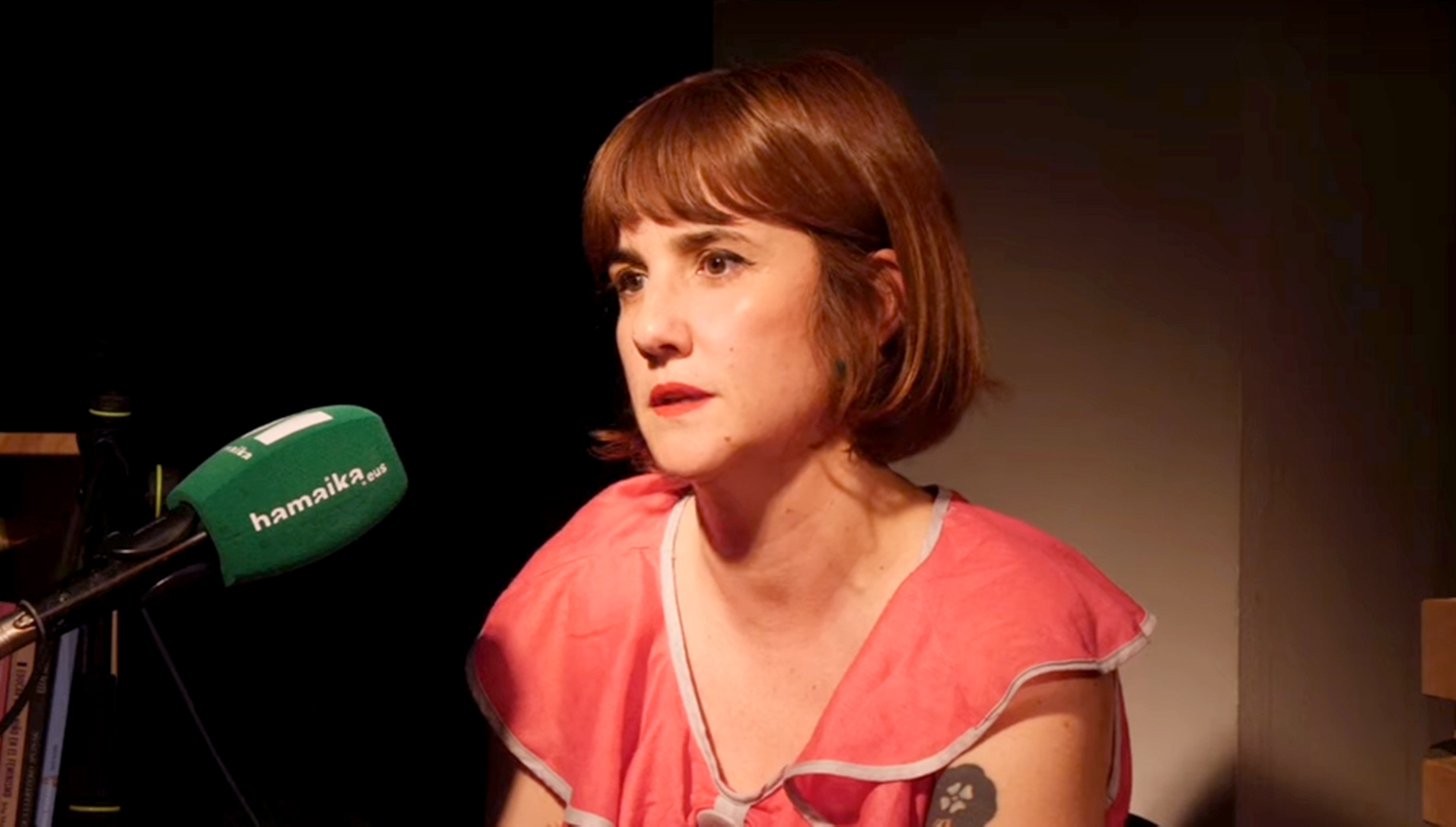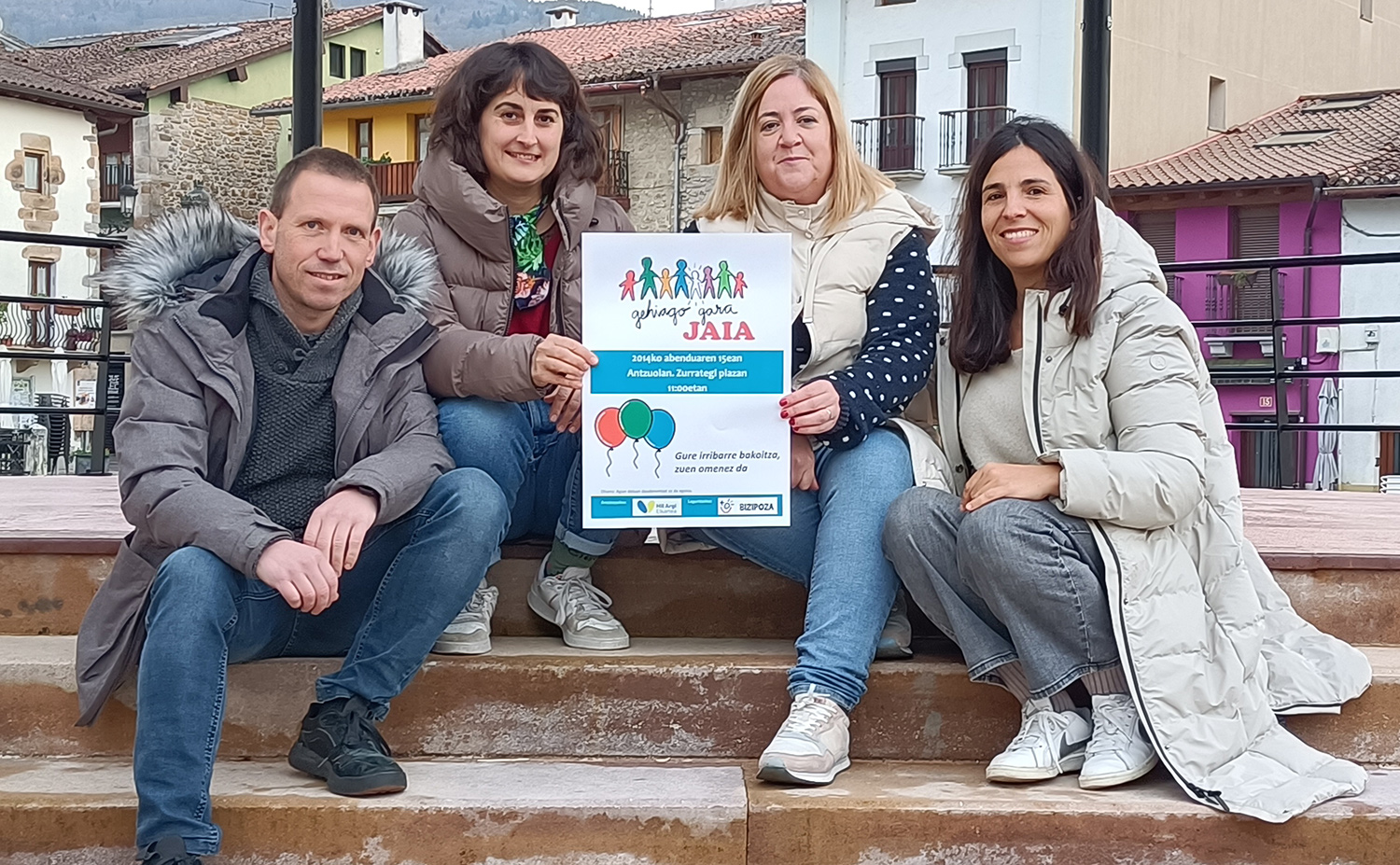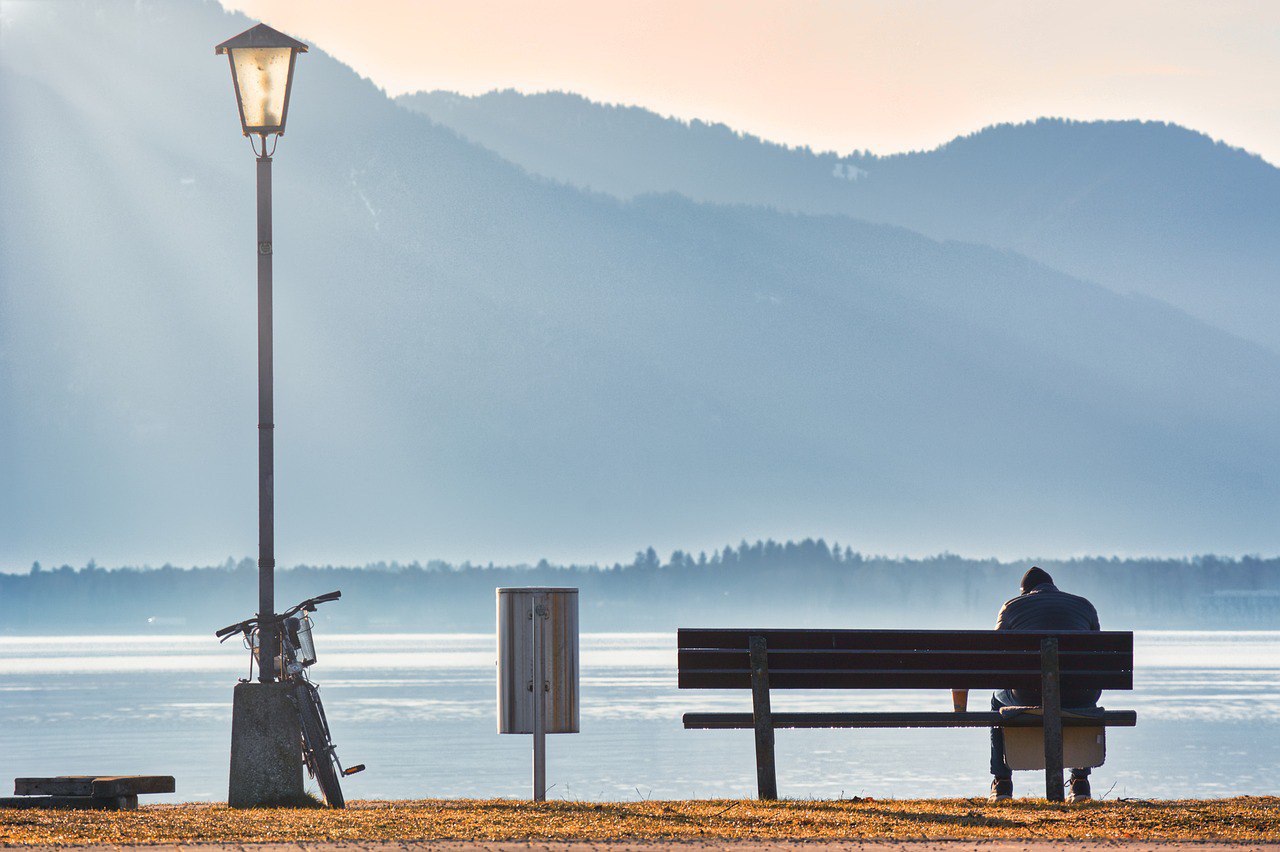Law on Dignified Death in the Basque Country: Another gesture?
- Fernando Marín appeared in 2015 as an expert at the Commission on Human Rights of the Basque Parliament to give his opinion on the bill of dignified death. In the following text, he criticizes the laws of this type that exist in the communities of the Spanish State and considers that none contributes to the respect of the will of patients who want to die, so he considers that what is being debated in the CAV goes the same way. Marin proposes a series of measures to begin to improve the situation, without the need for new legislation. At the same time, it is strongly expressed on widespread fundamentalism in health.
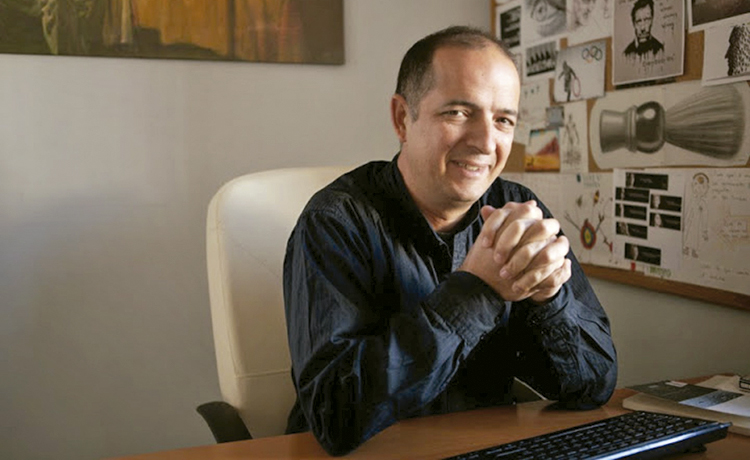
Eh Bildu sends us a project that could be signed by the bishop
In September 2014, EH Bildu forwarded to us the proposal of “law to guarantee the rights and dignity of people in the final process of life”, asking for our opinion. The first thing that surprised us was the attitude towards euthanasia, which could have been ratified by any bishop. Under the pretext of “lack of ethical and legal consensus”, the text tried to answer almost without saying anything to the question “what happens when the patient wants to die”, but that is impossible. Civil rights have never been recognised unanimously, they are an achievement by the majority – in this case 80% – against power or status quo, and consensus is not possible. On the other hand, some reference agents have been in favour of the decriminalization of euthanasia. At international level, examples from the Netherlands and Belgium have highlighted the possibility of regulating euthanasia with sufficient safety guarantees.
Secondly, we express skepticism about the capacity of a dignified death law, similar to that which exists in other territories of the State, to improve the quality of death. To avoid a new failure, before the creation of the laws, a series of measures must be envisaged that promote a new culture of death (dignified death) and favor a paradigm shift in the relationships between doctors and patients, from paternalism to mutual respect and empowering citizens at the end of life. Why will another law provide greater assurance than the 2002 autonomous law?
The bill says that the Department of Health will conduct a study on the degree of compliance and satisfaction of citizens, but what will be the indicators? For example: to what extent the citizenship knows the rights that correspond to the end of life; how many living wills there are in each area of primary care and in each nursing home; how much information has citizenship received about their process of death; degree of comfort; treatment of symptoms; number of tests performed in the last seven days of life (diagnostic or therapeutic insistence); individual bedroom; place of death (if it has been or not chosen for the indication of patient)
The Basque Parliament on the roads of the past?
In January 2015, 13,975 living wills were registered in the Basque Country, 6.38 per thousand inhabitants, behind Catalonia (56,000, 7.47 per thousand), but above the state average (3.86 per thousand). Most health professionals do not know the law of autonomy 41/2002 (one study reveals that only half know that the living will is regulated legally and only 25% have read it). Data show the failure of administrations. Do we need a law to change that? No, it is enough to realize that it is important to improve the quality of death and that the living will is a very useful tool for this.
Because in the Basque Country the citizens die badly, and that is why Parliament intends to make a law to guarantee the dignity of the people. The EBRD considers dignity and freedom to be inseparable. For death to be dignified, one must respect personal freedom, autonomy to decide how one wants to be cared for and when one wants to die. To pretend to guarantee dignity, without previously ensuring that each person owns his or her own life, is a project aimed at making mistakes.
Right to voluntary death
Under current legislation, voluntary death is a right when life depends on a treatment and a person suffers a suffering that cannot be adequately alleviated (refractory suffering).
The first case should be clear, but it is not. In 2007, Immaculate Echevarría, a woman who had been linked to a respiratory machine for a decade in a hospital in Granada, took five months to make an assessment of her will to die. His lawsuit was one of the causes of the promulgation of the first Andalusian law on dignified death [of the Spanish State]. This law sought to clarify the rights of patients in the process of death, the obligations of professionals and the guarantees of the system.
However, throughout the State, both in communities with a dignified death law and in which they do not have, such as the Basque Country, citizenship has difficulties to give up treatment, especially when artificial nutrition and hydration are rejected and their will to die is clearly expressed.
In the second case, the right to alleviate suffering does not appear explicitly in state law, but it makes clear the human right not to receive cruel or degrading treatment. The Law 41/2002 on Patient Autonomy states that “the patient has the right to freely choose among the clinical options available to him after receiving the appropriate information”. The Law on the Cohesion and Quality of the National Health System establishes the right of all citizens to receive quality care. The autonomous laws on dignified death develop this right as follows:
“All persons affected by a serious, irreversible and fatal disease, in their most deadly or life-threatening state, have the right to relieve their suffering through comprehensive and quality palliative care, wherever the patient chooses and, if his or her situation permits and wishes, at home”
“Patients have the right to receive adequate care to prevent and alleviate pain, including sedation, if symptoms are refractory to specific treatment”
“Patients in serious and irreversible situations, at the time of their death or dying, are entitled to palliative sedation if they are suffering refractory suffering”
(Aragonese Law 10/2011, of 12 November. Articles 13 and 14)
Medical fundamentalism
Relief from suffering and palliative sedation are theoretical rights that, in practice, depend on a doctor who adapts to oneself. Despite the fact that the autonomy law of 2002 is clear, citizens have a major obstacle to their will being respected: medical fundamentalism.
Today, we have two conceptions about the decisions of the end of life: the autonomy and the sacredness of life. Traditionally, dominant fundamentalism in monotheistic religions has permeated justice and medicine: every sin was a crime. However, society is now plural and it is unacceptable that such a vision should be imposed. In the twenty-first century, the autonomy of citizenship (“my life is mine”) clashes with the paternalistic tradition of medicine and with that fundamentalism that calls sacred life. However, the medical schools and the church opposed the death law worthy of Andalusia and considered Immaculate's death as euthanasia, although it was not.
Palliative care, but not of
All citizens must have at their disposal quality palliative care that respects their will. The dogma that palliative care does not extend or shorten life is not compatible with respect. The restricted use of sedation, based on refractory symptoms and the immediacy of death, instead of the patient's will and his experience of suffering, is another type of fundamentalism, rejected by the public who wants to decide how long he is willing to endure the final process.
Palliative care is a means and not an end. There is no right to receive them, but the right to alleviate suffering and to respect personal values and beliefs, expressed at the moment or previously, through the living will. Palliative care is not a specialty, it does not have a set of knowledge of its own, but a philosophy, a respectful approach to the biography of each person. Unfortunately, we see cases of medical insistence, where this assistance resource mediates and denies the suffering of people. Affirming that one does not suffer with palliative care is a moral cruelty, because it is false and involves a lack of respect and recognition for the people who suffer at the end of their lives. Palliative care is compulsory, but not so.
The perverse consequences of the Penal Code: beyond euthanasia
The Penal Code has a bad consequence: it is an excuse for not respecting the will to die that the legislation loves. “What you asked me for is illegal,” “What do you want your father to starve to death and thirst?” Professionals can prioritize their beliefs (in favor of biological life) against their professional goals (alleviating suffering while respecting the values of each human life), with totally unprotected patients. We cannot dedicate our entire lives to discussing the intention of a professional to perform sedation, nor how to measure whether the suffering of a patient is unbearable or not, because what really matters is the will of the patient.
As the Support report pointed out twenty years ago, there is a lack of personal commitment from professionals, but there is also fear of being punished, a punishment that may come from coworkers or from a law similar to the sword of Damocles for doctors who help to die.
Dignified Death Observatory
The Centre has two areas of work. The first would be to assess how citizens die in the Basque Country and what measures should be taken to improve the quality of death. It is not enough to increase the resources of palliative care, it is also necessary to check if they meet the wishes of the citizens.
The Observatory should be directly dependent on the Counselor and be able to activate a care team committed to a dignified death, attend to those citizens who do not find other resources they like in order not to have to settle for the doctor and the work team that have assigned them, or not have to resort to the DHE. It should be the gateway for citizens to be able to ask Osakidetza for the solution to which they are entitled.
The quality of death will not improve until voluntary death is regulated. A law of this nature will allow between 3% and 4% of the deceased to exercise their right to euthanasia and will allow all citizens to demand the care they want and decide how and when they want to die. We do not need a dignified death law to take action, but if they do, we must honestly acknowledge the real situation and be a law that is ready for the day euthanasia and assisted suicide are decriminalized.
Every citizen of the Basque Country can receive a lethal dose of pentobarbital bought at home via the Internet. The debate is not whether there is euthanasia and assisted suicide, but whether we will continue to make deaf ears using palliative care or an impossible consensus as an excuse. Talking about respect for autonomy and at the same time denying the possibility of managing one's own life is not coherent.
Inmaculada Echevarría nafarra 2007an hil zen, Granadako (Espainia) ospitale batean, hamarkada batez arnas makina bati iltzatuta bizi eta gero. Echevarría 2002ko Gaixoaren Autonomiaren Legeaz baliatu zen aspalditik adierazita zuen hiltzeko nahia bete zedin. Tratamenduari uko egiteko eskubidea erabiliz, bizirik eusten zion makina amata ziezaioten lortu zuen, nahiz eta medikuek –erlijio ordena batek kudeatutako erietxean zegoen– ez zuten haren eskaria berehalakoan aintzat hartu.
Aditu askoren esanetan, Echevarríaren heriotzak agerian utzi zuen “makinaren zortearen” paradoxa. Fernando Marínen hitzetan, “Inmaculadak hiltzeko aukera izan zuen makina bati iltzatuta egoteko ‘zorte ona’ eduki zuelako; bere kasa arnasa hartzeko ‘zorte txarra’ izan balu, ezin izango zukeen hiltzeko borondatea gauzatu. Erabat zentzugabea da, baina horixe da egoera”.
These were my last words when we left, held hand in your deep breathing sleep. Your heart stayed forever without a special, simple, dignified pain. As you want and demand. How we want and respect.
Already a month before the arrival of winter, the last days of the longest night,... [+]
First of all, we wish to extend our condolences to the family and friends of the woman killed in early August.
The people of Gaintxurizketa are fed up with the disillusionment of the administration and those responsible.
Those of us who live in the neighborhood are forced to... [+]
Paris 1845. The Labortan economist and politician Frédéric Bastiat (1801-1850) wrote the satire Pétition des fabricants de chandelles (The Request of the Sailing). Fiercely opposed to protectionism, he ironistically stated that the sailing boats asked for protection against... [+]
(Azken aldi luzean ezin naiz gauez atera, eta arratsaldez ere larri, eta asteburuetan ere ez, eta (jarri zaizue jada ihes egiteko gogoa), marianitoak eta bazkari azkar samarrak izaten dira nire enkontruneak. Konpainiak ondoegi aukeratu behar ditut. Ezin ditut poteoak... [+]







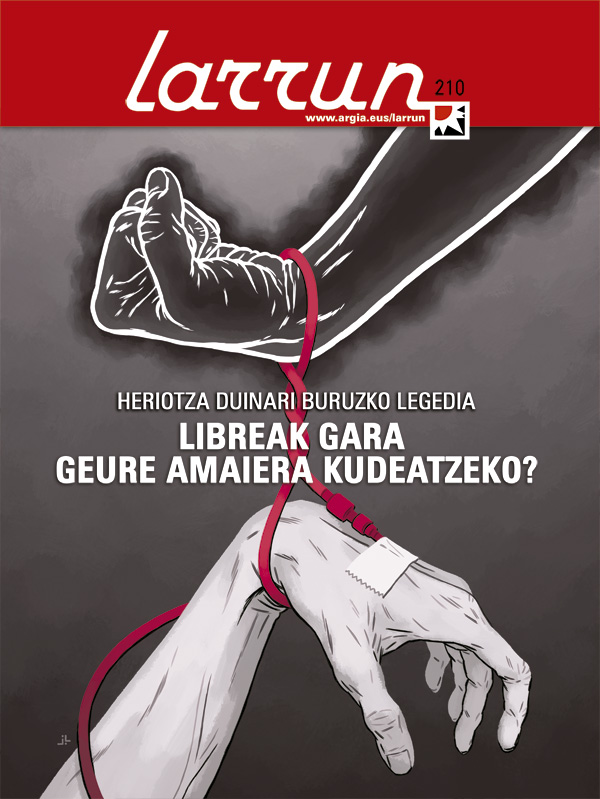

.jpg)
